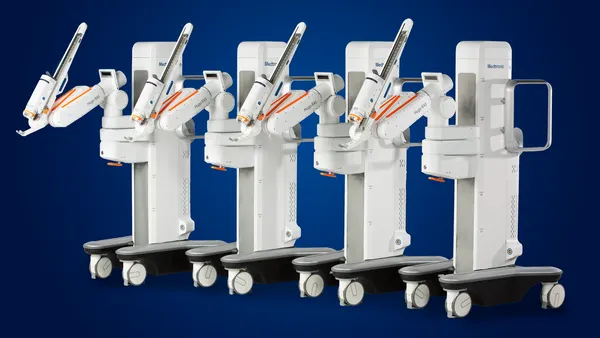Dive Brief:
- The Food and Drug Administration said it is sticking with a standard 60-day timeframe for the public to provide feedback on its proposed rule to increase oversight of laboratory-developed tests (LDTs), despite receiving requests to extend the window.
- The agency unveiled its much-anticipated proposal to increase oversight of LDTs on Oct. 3, starting the clock ticking on the comment period. The rule aims to bring all in vitro diagnostics (IVDs), including those whose manufacturer is a laboratory, under one regulatory framework, while phasing out the agency’s current enforcement-discretion approach for most LDTs.
- The FDA contends that risks associated with lab-developed tests have increased as the tests have proliferated in the decades since the discretion approach was adopted, requiring greater oversight.
Dive Insight:
Lab-developed tests are designed, manufactured and used by labs that are certified under the Clinical Laboratory Improvement Amendments program. The FDA has not enforced applicable regulatory requirements for most LDTs since the mid-1970s, when the Medical Device Amendments became law.
At that time, the tests typically were made in small volumes by local labs to serve community needs. Today, LDTs often are manufactured in high volumes and sold nationwide, and rely on complex instrumentation to generate results, according to the FDA.
Many test systems made by labs are functionally the same as those made by other manufacturers of IVDs, Elizabeth Hillebrenner, associate director for scientific and regulatory programs in the FDA’s Center for Devices and Radiological Health, said Tuesday during a webinar for the industry.
“Applying the same oversight approach to labs and non-labs that manufacture IVDs would better assure the safety and effectiveness of LDTs and would remove a disincentive for non-laboratory manufacturers to develop novel tests,” Hillebrenner told the webinar audience.
Further, LDTs are being used more frequently to predict personal risk of developing certain diseases and diagnose serious medical conditions such as cancer and heart disease, Hillebrenner said.
“FDA is aware that this scheme is in some cases fostering unfounded claims of innovation, rather than responsible innovation. These claims are concerning to FDA because they can mislead the public, undermine legitimate competition and disincentivize responsible science-based innovation,” Hillebrenner said.
The FDA’s plan to regulate LDTs as medical devices has encountered pushback from some parts of the lab industry. The American Clinical Laboratory Association has been vocal in its criticism of the proposal, arguing that the plan is not in the best interest of patients and that FDA does not have statutory authority to regulate LDTs.
The ACLA has said it will submit comments urging the agency to withdraw the proposed rule and work with Congress to tailor legislation to fit LDTs.
Legislation, known as the VALID Act, that would clarify the FDA’s authority to regulate lab-developed tests was reintroduced in Congress this year but has not progressed.
Under FDA’s proposed rule, some types of tests would still be exempted from enforcement, including donor screening tests, tests intended for emergencies and direct-to-consumer tests.
Comments on the proposed rule remain due by Dec. 4, the FDA said. The rule has so far received 1,000 comments.









